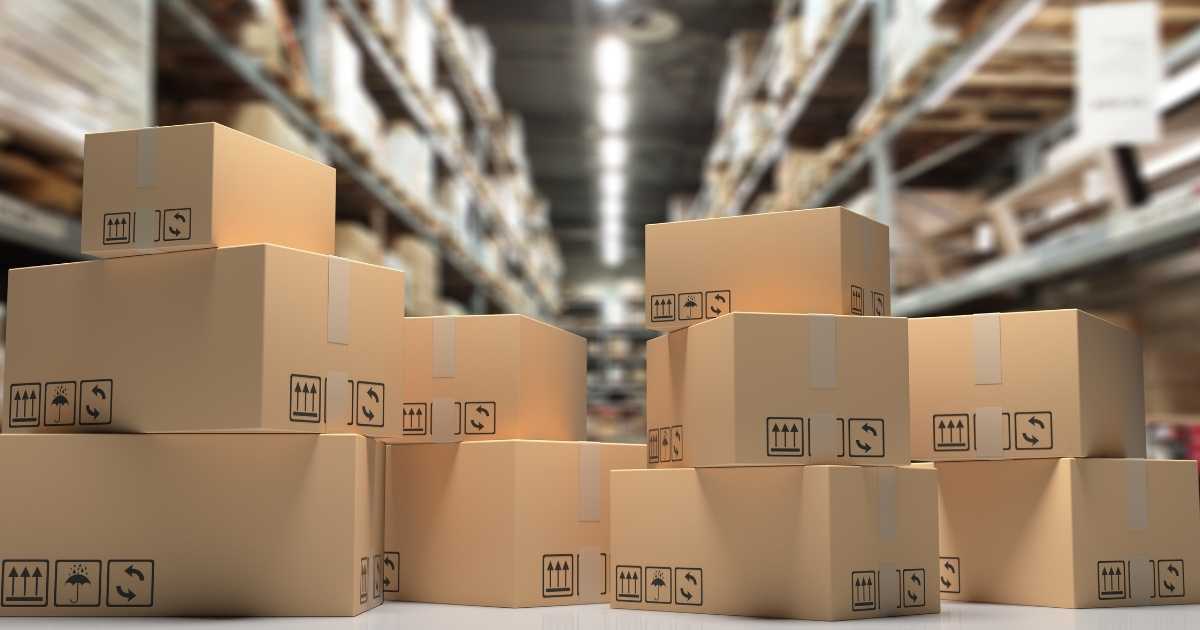Forecast to reach $218.2 billion in value by 2027, the United States packaging industry is massive and multi-faceted. One crucial type of packaging within the supply chain? Industrial packaging.
Industrial packaging may not be as glamorous as consumer packaging, but it’s equally essential for protecting products on their transit journey and as a vessel for communicating about your brand. Not sure if your brand needs industrial packaging? We’ve got everything you need to know about industrial packaging, including how it differs from other packaging and how it benefits your business by safeguarding, simplifying, and securing the product in the shipping and storage process.
What Is Industrial Packaging?
Industrial packaging is designed and built specifically for shipping and storing large volumes of a single product. This type of packaging considers several factors, including the desired thickness and weight of the packaging, product protection, moisture levels and other environmental concerns, anticipated duration of storage, and compatibility with the product and brand.
If you're looking to get your products directly from point A to point B without multiple touch and storage points along the way, industrial packaging may be right for your brand. Unlike consumer and primary and secondary packaging, heavy-duty industrial packaging protects and stores products during shipping and transport.
Industrial packaging:
- Serves the primary purpose of protection based on the unique requirements of its contents
- May contain a variety of materials in a single design
- Must meet international standards
Because industrial packaging is often used with industrial-grade goods and products, this packaging type must offer next-level robustness and durability. However, its purpose isn’t just to protect its contents. Industrial packaging can also be designed to streamline, simplify, and improve the sustainability of your shipping process.
Industrial Packaging Materials
Regarding industrial packaging materials, remember that all materials aren’t created equal when protecting different items. Depending on the product, some materials may be more appropriate than others. Common industrial packaging materials include wood, corrugated cardboard, paper, formed stainless steel and other metals, shrink wrap, and polypropylene.
No two products are the same, so many industrial packaging designs often incorporate a customized mix of several of these materials to achieve the best solution in each case.
What’s the Difference Between Consumer & Industrial Packaging?
Wondering about the difference between industrial and consumer packaging? The answer comes down to scale.
Consumer packaging refers to the packaging around a product that consumers directly interact with. Think of the box your moisturizer comes in and the bottle the product sits in. On the other hand, industrial packaging is used to protect and ship hundreds or even thousands of individual moisturizers from the warehouse to retail locations. Industrial packaging is on a much larger scale than consumer packaging because it has to hold up to the rigors involved in transportation.
You could also consider aluminum cans that contain soda as the consumer packaging. However, these cans aren’t shipped from the manufacturer to the retailer as a massive pile of soda cans — that would probably make a huge mess! Instead, they’re packaged securely en masse into industrial packaging designed to make the process easier and safer.
Do I Need Industrial Packaging?
Not all brands need industrial packaging. If your brand is solely based on ecommerce and ships products directly to customers for your production facilities, you most likely do not need industrial packaging.
But suppose your brand is starting to partner with retailers or looking to store products in Amazon warehouses for faster shipping. In this case, you may need to find an efficient way to transport and store products that require higher levels of protection beyond traditional packaging. In that case, industrial packaging is a smart solution.
In supporting your efforts to optimize your supply chain and reduce the risk of breakage, industrial packaging can offer a multitude of benefits, including:
- Reducing losses: properly packed products are less likely to incur damage during transit
- Safer storage: products stored in industrial packaging are also less likely to incur damage in storage
- Enhanced confidence in shipping: optimized industrial packaging gives you confidence products will arrive safely
According to a recent Packaging Digest article, well-designed and aesthetically pleasing industrial packaging can influence consumer perceptions about your brand. Industrial packaging doesn’t have to be plain, boring cardboard! You can customize industrial packaging with your brand colors and art for a complete brand experience from the moment your products leave the warehouse.
Get Started With Your Industrial Packaging
Whether you’re just getting started on your industrial packaging journey or looking to refresh your current packaging, we’d love to talk to you about our customized industrial packaging solutions, including custom shipping boxes, retail-ready boxes, insulated shipping boxes, roll-end front tuck (REFT) boxes, regular slotted containers (RSL), and more. As corrugate pros, we’re also experts in creating sustainable solutions, including industrial packaging.



/BC_Logo2_White.png?width=300&height=83&name=BC_Logo2_White.png)